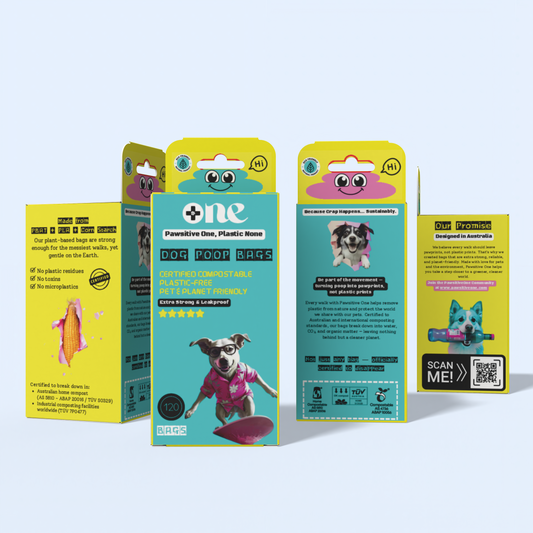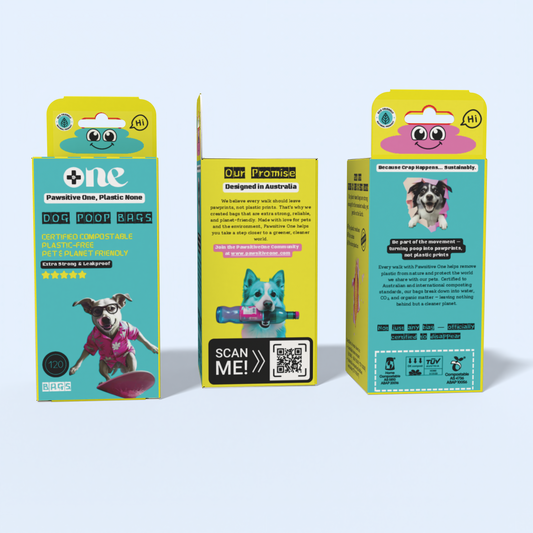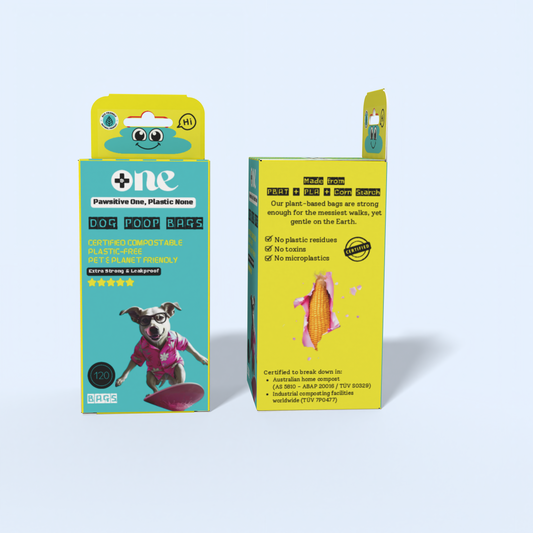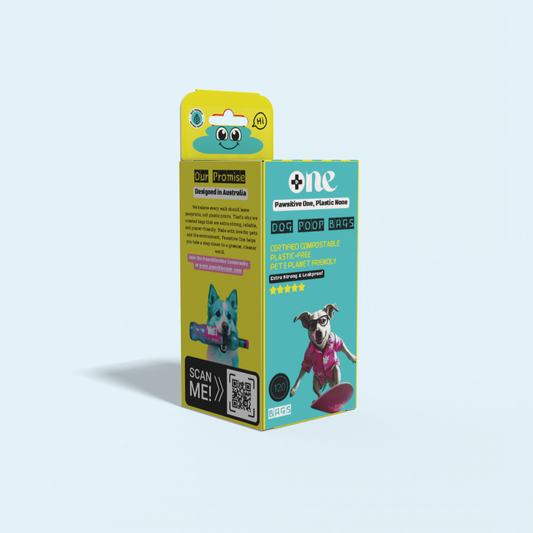9 Secrets About Eco Friendly Dog Poop Bags Every Australian Pet Owner Needs to Know!
The Hidden Truth About Eco Friendly Dog Poop Bags
Did you know that the majority of "eco friendly" dog poop bags on the market today might not be as green as they claim? A recent study revealed that many of these bags fail to decompose as advertised, leading to increased landfill waste. Let's dive into nine secrets that will revolutionise your approach to picking the right eco friendly dog poop bags for your furry friend.
Secret #1: The Eco-Friendly Label Scam
Many dog bags are marketed as "eco-friendly," but what does this actually mean? Often, these labels are nothing more than marketing gimmicks. To ensure authenticity, look for bags that are AS 5810 certified, indicating they truly meet compostability standards.
Secret #2: Compostability vs. Biodegradability
There's a significant difference between biodegradable and compostable bags. Biodegradable simply means the bags will break down eventually, but this process could take years. Compostable bags, however, break down into non-toxic components much faster. Ensure your dog waste bags are truly compostable to make a real environmental impact.
Secret #3: The Hidden Ingredients
Some bags contain hidden plastic components that prevent them from breaking down completely. Always read the fine print on packaging to ensure there are no such additives.
Secret #4: Cost vs. Value
While eco friendly options might seem pricier upfront, they can save you money in the long run by reducing environmental damage and potentially avoiding fines for improper disposal. Investing in quality biodegradable poop bags is a wise choice for conscious pet owners.
Secret #5: The Certification Game
To avoid being duped by false claims, rely on certification from reputable organisations. Look for AS 5810, ASTM D6400, or EN 13432 certifications to ensure the bags meet stringent compostability standards.
Secret #6: The Australian Regulation Gap
Australia's regulations on eco-friendly claims are less stringent than in some other countries. This means it's crucial for consumers to do their own research and choose products that genuinely benefit the environment.
Secret #7: The Role of Consumer Pressure
Consumer demand for genuine eco poop bags is driving change in the industry. By choosing certified products and sharing your preferences with retailers, you can help shift the market towards truly sustainable options.
Secret #8: The Real Environmental Impact
Using compostable bags reduces your pet's carbon pawprint significantly. Unlike traditional plastic bags that can take up to 1,000 years to decompose, certified compostable bags break down within weeks in a composting environment.
Secret #9: PawsitiveOne's Commitment
At PawsitiveOne, we pride ourselves on offering a range of compostable poop bags that meet high environmental standards. Our commitment to sustainability ensures that you can trust our products to be genuinely eco-friendly.
Take Action for a Greener Tomorrow
Switching to eco-friendly dog poop bags is a simple change that can make a big difference. Look for certified options, ask retailers about their products, and choose brands like PawsitiveOne that prioritise sustainability.
FAQs
Q: Are all eco-friendly dog poop bags compostable?
A: No, not all bags labeled as eco-friendly are compostable. Look for certifications like AS 5810 to ensure compostability.
Q: How can I tell if a poop bag is truly compostable?
A: Check for certifications such as AS 5810, ASTM D6400, or EN 13432, which indicate the bag meets compostability standards.
Q: Why should I choose PawsitiveOne's eco-friendly bags?
A: PawsitiveOne bags are certified, ensuring they meet high environmental standards and truly break down in composting environments.
Q: What is the environmental benefit of using compostable bags?
A: Compostable bags break down into non-toxic components, reducing landfill waste and your pet's carbon pawprint.
Q: Can I compost these bags at home?
A: Yes, if you have a home composting system that meets the necessary conditions for composting biodegradable materials.

















